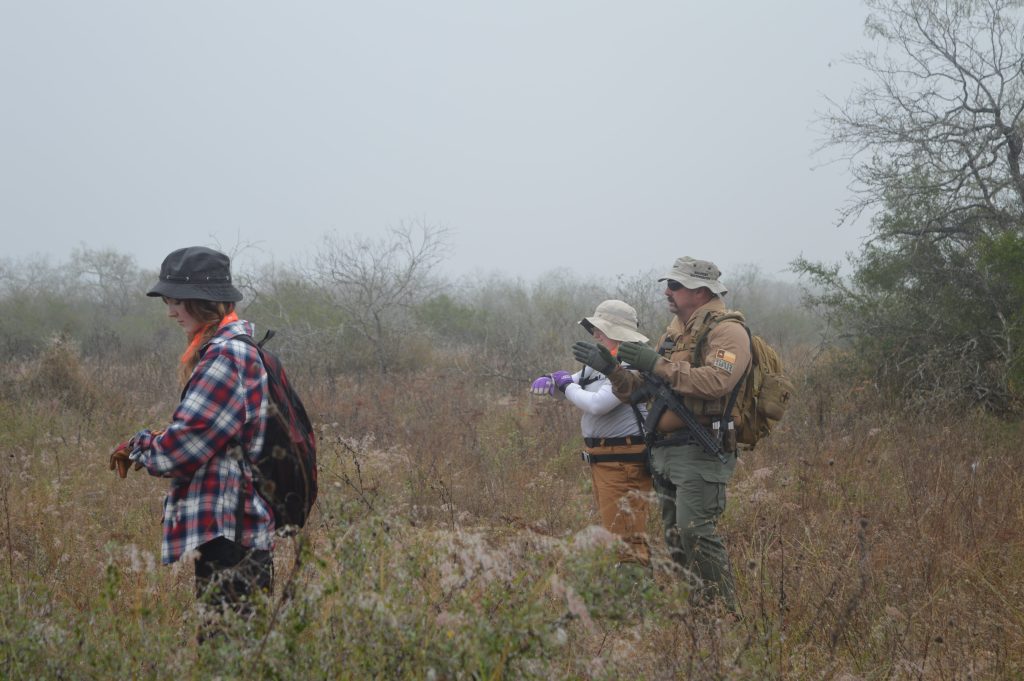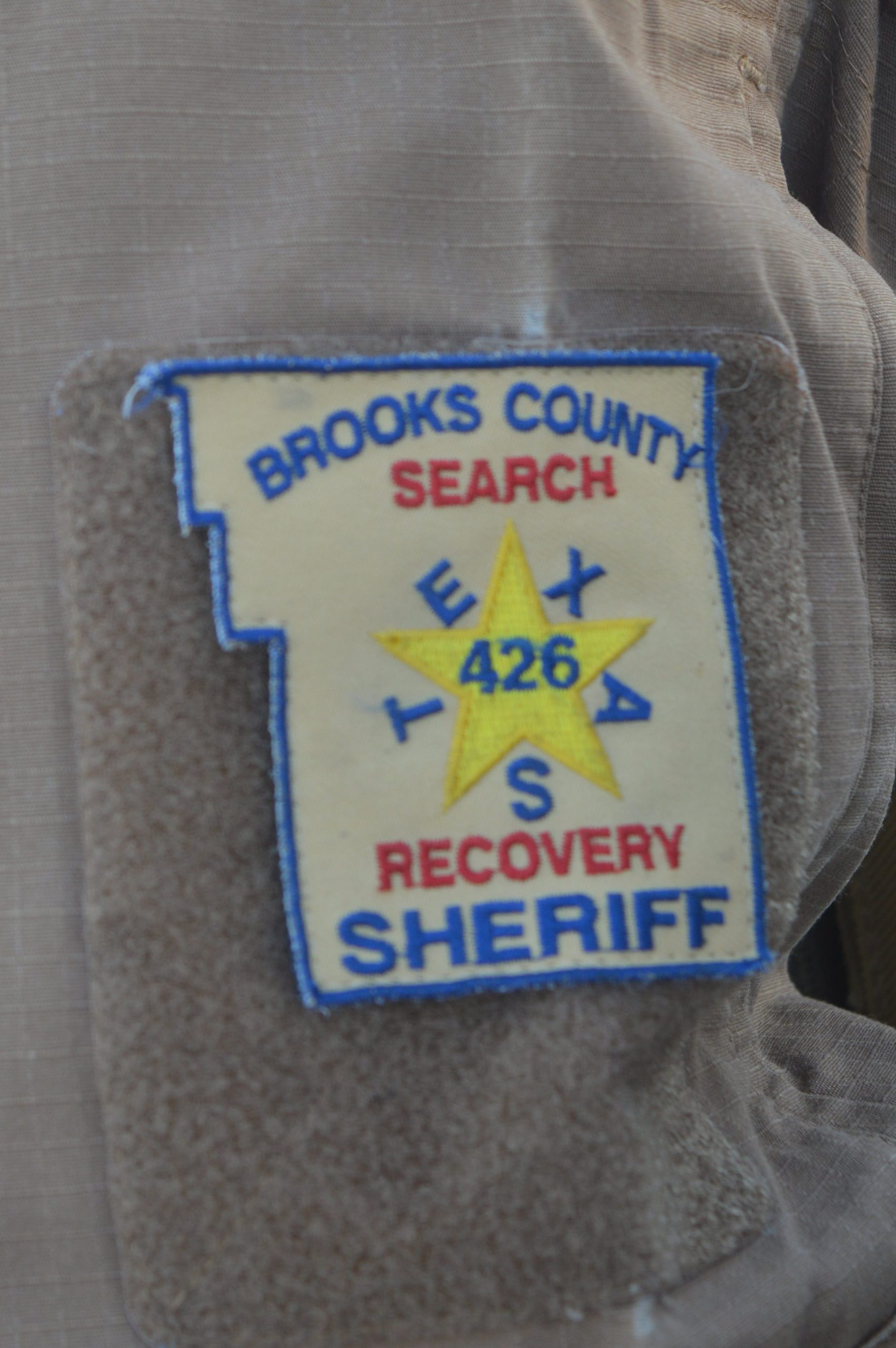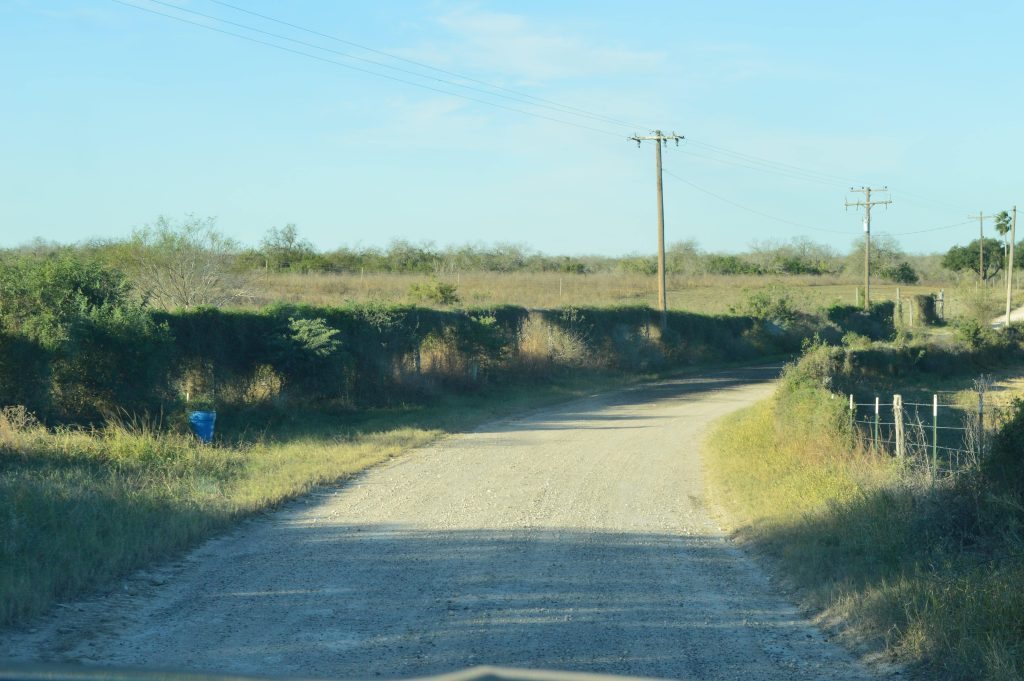We got back from our trip to Falfurrias late on Thursday night, but it didn’t feel like the trip was really over until I was back in my apartment, looking up at my ceiling as I tried to fall asleep. In a way, it still doesn’t feel like it has ended, as I’ve procrastinated unpacking my suitcase all of the way and it currently sits opened on my floor and blocking the door to my room–making me shimmy my way in and out every day.
The next morning there wasn’t much time for reflection either, as I headed straight into training for my job at 10am and didn’t have much time to think about the trip. It strikes me now that until this moment, as I write this, I haven’t had much time for reflection at all. I’ve been going from training to working to sleeping, and even when people ask me about how the trip was, I find myself at a loss for words for what to say.
How was the trip? What was it like? What did you find? Did you have a good time?

These questions and more have seemed hard to formulate responses to, and even now I’m not really sure how to answer any of them. The trip was good, I learned a lot and I still feel like I’m learning more as time goes on, but I’m not sure how to describe what it was like, and my answers feel much too simple.
It is hard to take the time to explain to others what it was that we did there and what that means when I’m still unpacking things myself.
I think when I am asked whether or not I had a good time, I find myself thinking about the team. Because, for approximately a week, they were the only people I was regularly interacting with. We woke up together, drove everywhere together, ate together, and fell asleep together. We enjoyed our Emergen-C packets at the start of every day (which I do miss, funny enough) and bonded in the evenings over how our days had been. It is easy to articulate your feelings when there are people alongside you, sharing the weight of those experiences.
My mind drifts to the migrants, their hardships, their lives, and the cultures that they are all leaving behind to come to the United States, and I feel a great sympathy for them. We spent days walking through the brush with gear, gators, compasses, and hats, drinking clean water, and dousing ourselves in sunscreen and bug spray, and even then it wasn’t an easy day of work. I find myself trying to put myself into their shoes, to think about what they experience and the hardships they face on their journeys, and I find it hard to think about. Because I’ve never experienced that, and I most likely never will.

But above all I find myself thinking about their families, their friends, thinking about the graves that we saw at Sacred Heart Cemetery, and the beautiful decorations that adorned them. I find myself wondering about the lack of permanent gravesites for the individuals who have been lost on the journey, and what it can mean to make a crucial recovery like that.
But, as great as it can be to make a recovery, I have to remind myself that it isn’t something that happens easily and that not making a recovery is just as important as making one. While there, we made one recovery, but we also managed to clear out areas that Don was interested in searching, and I think that that is often overlooked. I know I overlook it when judging how “successful” our trip was, which seems a bit trivial in the grand scheme of things.
Beyond that, going on this trip changed my perspective on a lot of things. It is easy to think of these things as black and white, as that is often the way the border crisis is portrayed in many forms of media. Even with my own perspectives, which I once viewed to be very open and understanding, going on this trip showed me that much of my viewpoint ignores just how vast of a situation this is, one that has huge social and political implications that affect both the migrants and the people around them.
The border crisis is a multifaceted situation, one that is not easily solved by a simple law or a change in viewpoints. The work we did here may seem small in the grand scheme of things, and in a way, it may be. But the work we did here, the work Don and Ray do here, has lasting impacts on the way that the crisis is viewed, talked about, and dealt with.
It is important then to not view this as the end of my humanitarian work, but rather as the start of it. This trip wasn’t just a one-time experience–it was the start of a commitment to understanding, advocating, and helping wherever I can.
As I finally start to unpack it all–both my suitcase and my thoughts–I find myself grateful for the lessons learned and the connections made. I may not have all of the answers to the questions people ask me, and I may never be able to articulate the depth of what this trip meant to me, but I do know that the emotions felt and the perspectives gained will continue to influence me in ways I am only just beginning to understand.

I’m endlessly grateful to Don, Ray, Dr. Latham, Dr. Eriksen, Frankey, Chastity, and Lilly for helping me every step of the way.
– Makenna